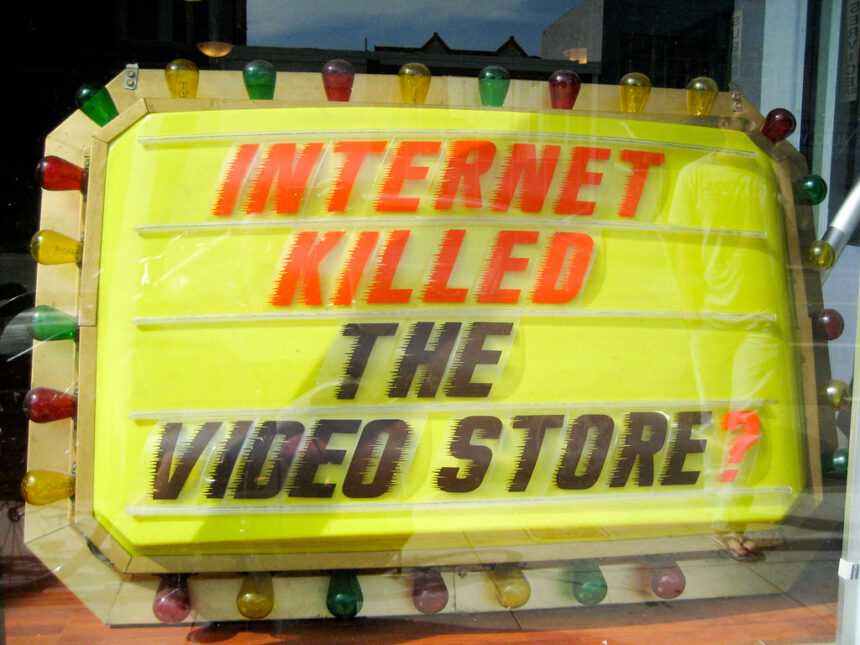Netflix (NFLX), one of the few American tech giants that has a cushion to protect it from a severe fallout, appears to be one rare exception.
Barron’s analysis noted that while many firms brace themselves for heavy blows the streaming platform’s globalization and reliance on locally produced content may offer a protective shield against tariffs and retaliatory actions.
Apple shares have fallen 16% since President Donald Trump’s recent round of tariff announcements.
Netflix, on the other hand, has seen a relatively mild decline of just 3%. This is a far cry from the S&P 500 which has dropped 9% in the same time period.
On Tuesday, the stock rose by almost 3%.
Local investments reduce the risk of retaliation
Netflix is a subscription-based company that delivers digitally and weaves itself into the economic and cultural fabric of its international markets.
Netflix’s substantial investments in local economies may cause countries to hesitate before imposing punitive actions on Netflix.
Netflix will invest $6.8 billion in European productions between 2020 and 2023. It will maintain 11 local offices across Europe.
According to Bernstein analyst Laurent Yoon this deep integration makes Netflix more than just a foreign content provider, but also a participant in nurturing the local industries.
Yoon also highlights that 60% Netflix’s catalogue is made up of titles from outside the US, demonstrating its commitment to regional storytelling.
Netflix is able to gain some political protection from this extensive local engagement.
Netflix’s licensing fees and investments are a major source of income for many countries. They may want to think twice before taking harsh measures that might hurt their own creative industries.
Digital service taxes remain a looming concern
Netflix is not immune. In an escalating war of trade, the possibility of higher digital service taxes is one of the biggest risks.
These levies could increase or spread to other jurisdictions. They already range from 2% to 5 % in some markets.
Netflix’s subscription model is unique compared to other ad-based business models, such as Google or Meta.
Tax increases would be passed on to subscribers as a cost increase.
Jason Helfstein, an analyst at Oppenheimer, notes that such taxes could be politically unpopular in the United States because consumers feel the pinch.
Affordable entertainment is resilient in times of recession
Netflix’s low cost entertainment model could be a boon if the global economy contracts.
History suggests that cheap escapism is a good option during recessions.
During the Great Depression Hollywood enjoyed a “golden era” as audiences sought out affordable entertainment in spite of economic hardship.
Helfstein, a Barron’s contributor, said that Netflix’s potential for resilience is highlighted by the fact that staying home and watching Netflix can be a cheaper alternative to going out to a bar or restaurant.
Netflix is a major competitor in France, a country where local culture and language are fiercely protected.
Netflix’s adaptability to cultural changes, combined with its dominance, may help it avoid the worst effects of a global trade war that is intensifying.
This post Why Netflix could survive a trade war appeared first on The ICD
This site is for entertainment only. Click here to read more





